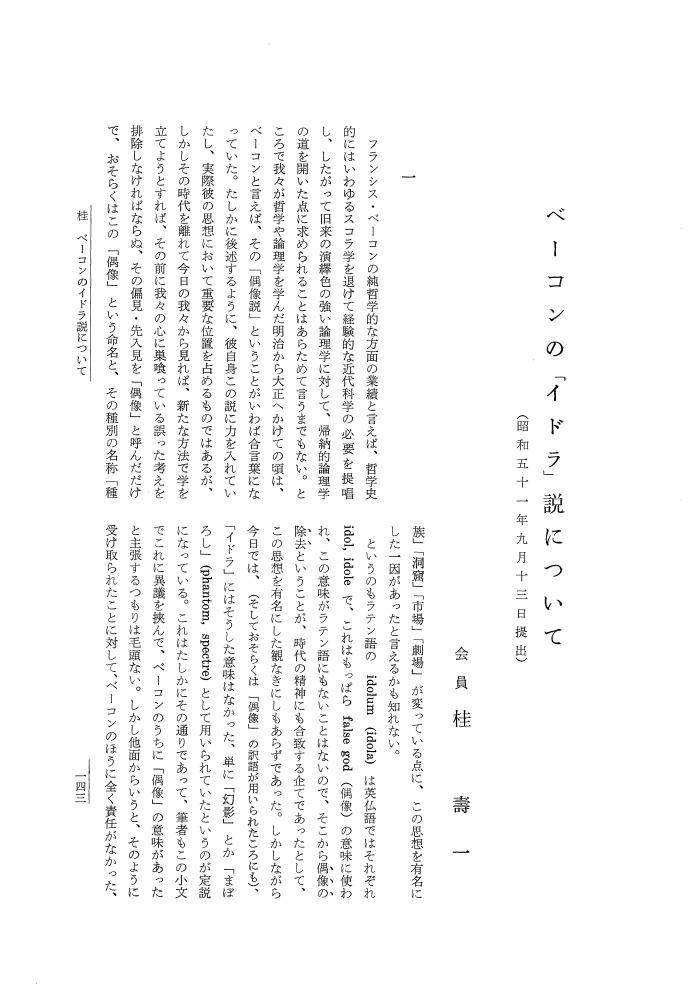3 0 0 0 OA ベーコンの「イドラ」説について (昭和五十一年九月十三日提出)
- 著者
- 桂 壽一
- 出版者
- 日本学士院
- 雑誌
- 日本學士院紀要 (ISSN:03880036)
- 巻号頁・発行日
- vol.34, no.3, pp.143-150, 1977 (Released:2007-05-30)
1 0 0 0 OA ベーコンの帰納法について (昭和五十七年十月十二日提出)
- 著者
- 桂 壽一
- 出版者
- 日本学士院
- 雑誌
- 日本學士院紀要 (ISSN:03880036)
- 巻号頁・発行日
- vol.38, no.3, pp.119-135, 1983 (Released:2007-06-22)
Bacon is esteemed and regarded as founder of modern inductive logic, and this is mainly correct in wider sense of induction. In its narrow sense, however, there may be several questions and doubts in such an estimation, which are found out easily by a brief survey of his writings. In order to clear up these sceptical points, we ought not merely to examine his opinions about induction mentioned in his writings on methodology, but to scrutinize his miscellaneous attempts of Natural and Experimental History in various fields of“Phaenomina Universi”, such are tried by himself fragmentarily and published posthumously.After careful investigations of these pieces and writings, especially of the research of“Heat”, developped in Book II of Novum Organum, I attained the result, which follows: Bacon's Induction intending, as he often maintained, to define the Forma of things and phaenomena, consists rather in gathering and managing the enormous amount of so-called empirical facts, i.e. experiences we meet in daily lives, and experiments we try ourselves to support and confirm experiences; in short, rather in method of“information processing”, than in the ordinary inductive inference of universal proposition.The article is deviled into 5 paragraphs1 Induction and inductive inference2 Bacon's opinion on the method3 The real process of his induction4 Research of the“form of heat”5 Definition of Heat and“Aids of understanding”Subjoined with 5 detailed Tables of Instances (translated into Japanese) 1, Praesentiae; 2, Absentiae; 3, Graduum & Comparativae; 4, Exclusivae & Rejectionis; 5, Praerogativae.
